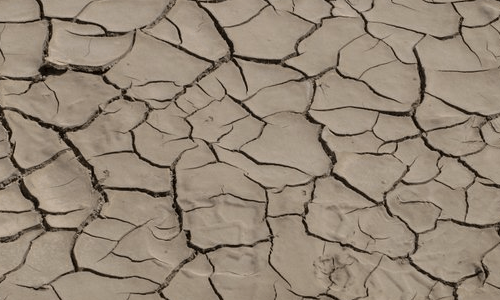
Epic Drought and Food Crisis Prompts South Africa to Ease Restrictions on GMOs

South Africa is facing its worst drought in three decades, potentially forcing small farmers out of business as food production and prices increase, the BBC reported. The situation is so catastrophic that South African President Jacob Zuma said last week that 2.7 million households would be affected by the drought.
2.7 million households hit by drought in South Africa: https://t.co/tV8r9Fwfv7 #ClimateChange pic.twitter.com/n0edAfzGoD
— UN Environment Programme (@UNEP) February 18, 2016
South Africa, Bukina Faso and Sudan are the only three African countries that allows the cultivation of GMO crops but a growing number of countries could join their ranks. For instance, despite its ban on cultivation and heavy resistance from anti-GMO camps, Kenya’s National Biosafety Authority authorized national field cultivation trials for GMO maize earlier this month to meet demand for food.
Proponents of the technology say that GMOs are a shield against worsening weather conditions brought on by climate change. Bill Gates, for one, is known to be pro-GMO seed, especially for the crops’ purported benefits to drought-prone African countries.
In February 2015, the business magnate and philanthropist told The Verge that “GMO-derived seeds will provide far better productivity, better drought tolerance, salinity tolerance, and if the safety is proven, then the African countries will be among the biggest beneficiaries.”
for improving drought tolerance.
Additionally, reports have surfaced of increasing pest resistance and a misuse of the technology in South Africa, as The Epoch Times observed:
In an analysis of 77 studies conducted in eight countries, a team of U.S. and French scientists found that nearly half of major pest species had become resistant to Bt cotton or corn plants, including the one in South Africa.
“Despite two decades of industry propaganda that genetically engineered crops boost yields or enhance nutrition, the evidence from independent scientists is that they do not,” Ronnie Cummins, international director of the Organic Consumers Association, told EcoWatch.
“On the contrary,” he continued, “the FAO of the United Nations and other international organizations have pointed out that organic or agroecological practices on the small farms that produce 70 percent of the world’s food result in much higher yields as well as more nutrient dense food. Not only can organic farms and ranches and home and urban gardens feed the world, they are the only way we will feed the world.”
YOU MIGHT ALSO LIKE
10 Reasons to Oppose the Senate Version of the DARK Act
DARK Act Is Back With New Bill in the Senate
FDA to Start Testing Monsanto’s Glyphosate in Food
India’s Food Supply at Risk of GMO Contamination After Lifting 16-Year Corn Import Ban

 233k
233k  41k
41k  Subscribe
Subscribe 